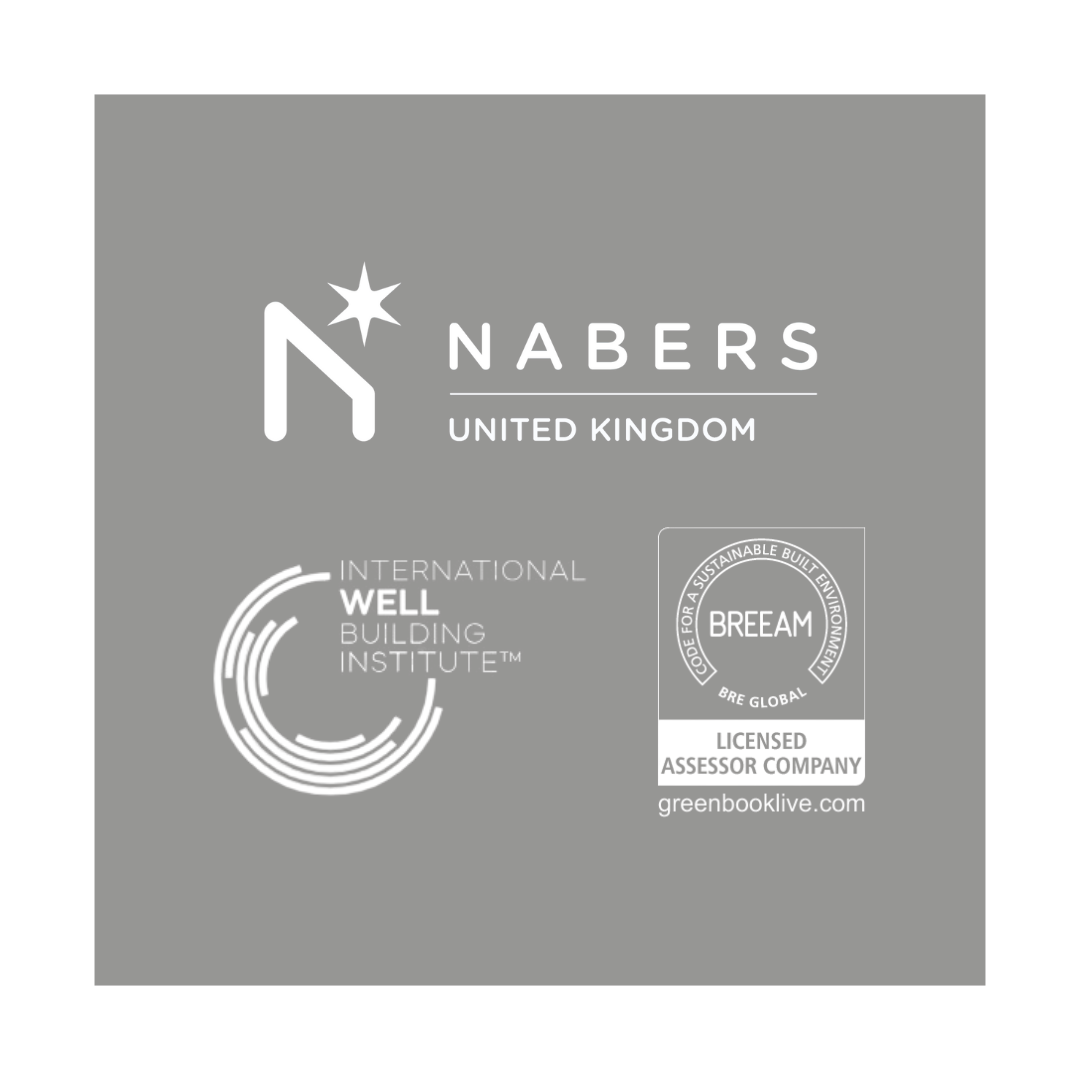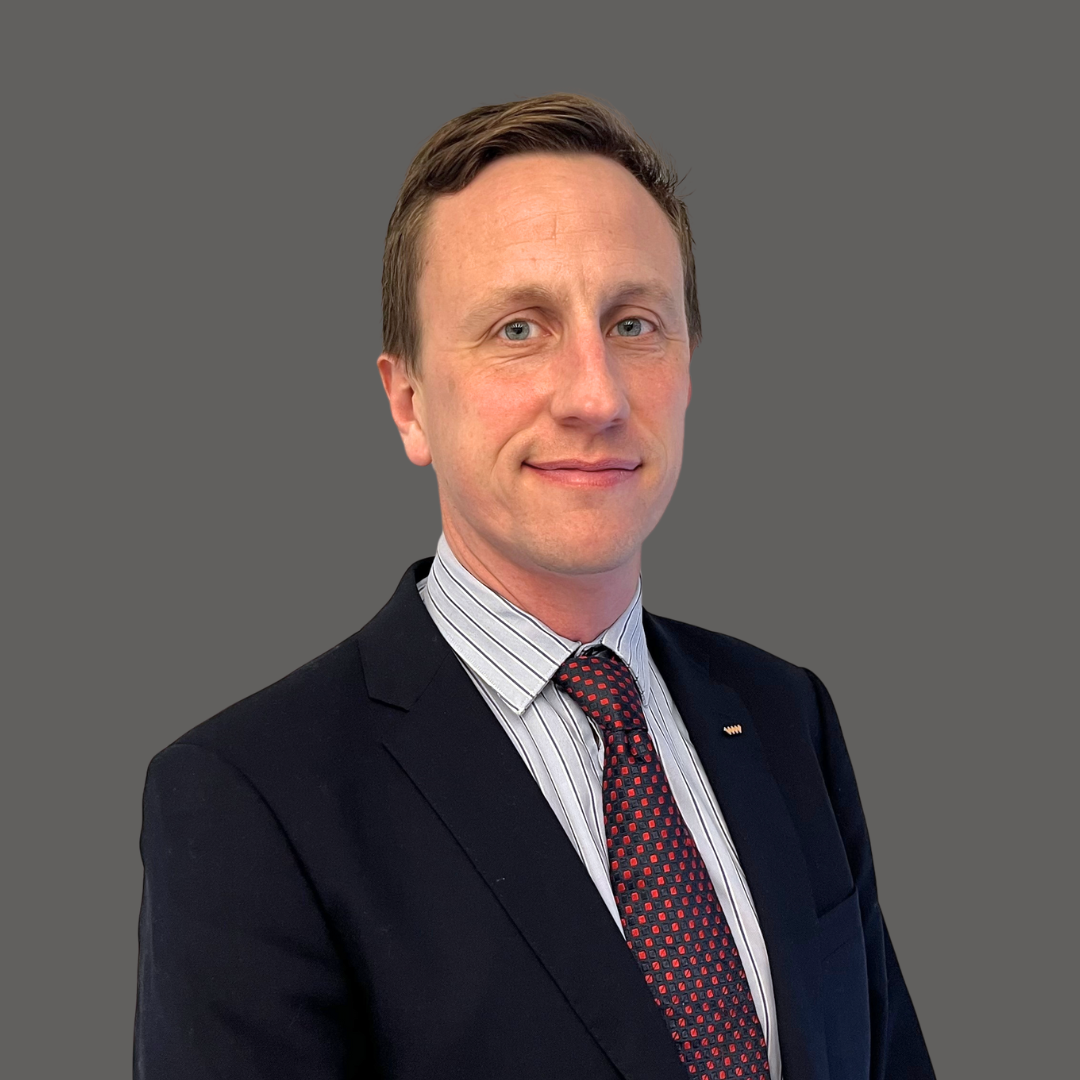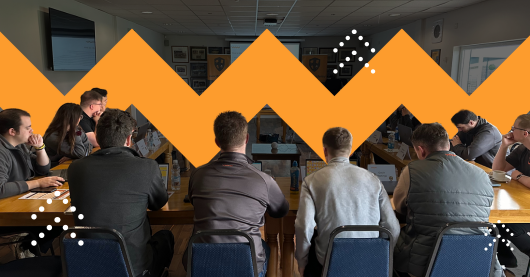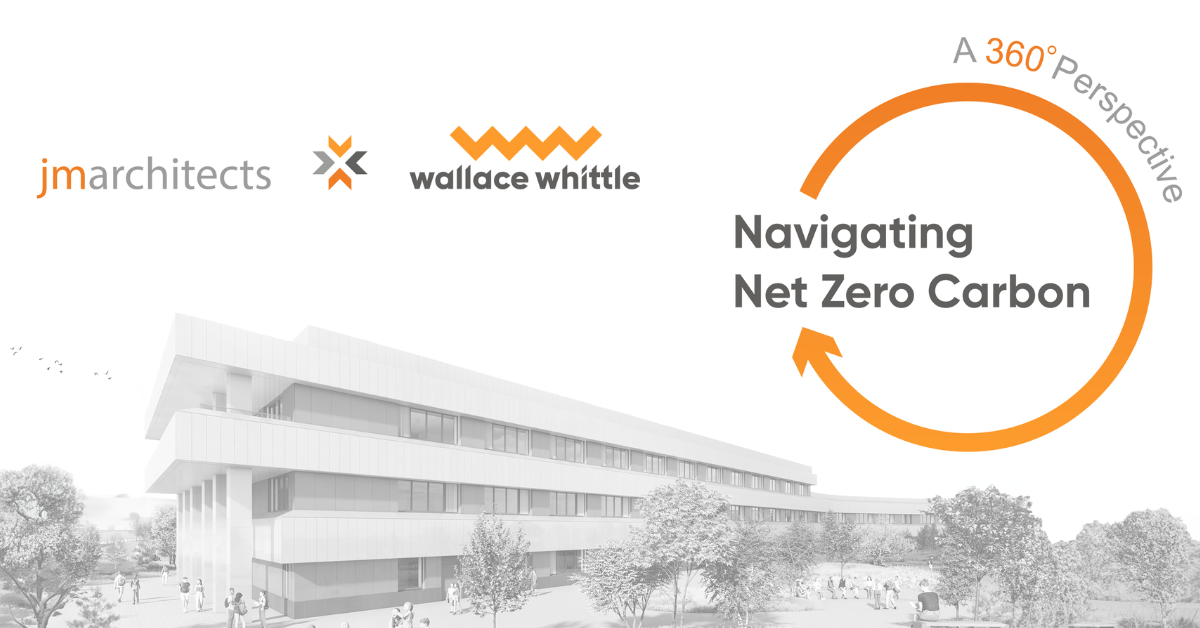ESG & Sustainability
At Wallace Whittle, we partner with our clients to embed ESG & Sustainability at the core of their operations.
We go beyond a purely environmental focus, addressing the economic, social and governance impacts that arise as part of the built environment and how they interact.
Ultilising our ESG model approach, we work with clients to develop Sustainability & ESG strategies, focusing on the drivers relevant to the sector and transposing into design and operational activities. We aim to provide our clients with a robust, sustainable solution against a range of criteria.
Our integrated ESG & Sustainability model allows us to create a bespoke approach for our clients.
Underpinning our approach to sustainability we have built on the principles of Environmental, Social Governance (ESG) making sure we understand the impact on our clients and helping them with the ever changing requirements around sustainability, political commitments, social and ecological value.
We work to provide our clients with a robust, sustainable solution against a range of criteria.
The strategy is underpinned by technical expertise. Within our business we have a range of sustainability experts, focusing on building performance, climate resilience, net zero carbon and social value. We also have in house assessors providing certification against BREEAM, Home Quality Mark (HQM) and NABERS.
By uniting our deep technical expertise in Sustainability, Mechanical, Electrical, and Public Health Engineering with a robust ESG model, we help clients achieve their net-zero ambitions, conform to regulatory compliance and beyond to optimise and innovate.
We believe that sustainable design extends beyond environmental impact – it’s about creating spaces that enrich lives and foster well-being. By integrating social value with environmental standards, we design buildings that engage communities, attract talent, and meet investor expectations.
Since people spend over 90% of their time indoors, the quality of our indoor environments directly affects health, mood, and productivity. Prioritising wellness in building design creates supportive, healthy spaces that enhance occupant well-being and promote positive experiences—an approach we call Designing for Wellness.
To ensure these wellness-focused designs meet the highest standards, we utilise guidelines from trusted frameworks, including WELL, The Living Building Standard, Fitwel, the BCO Wellness Matters Guide, and BREEAM. These standards guide us in designing environments that positively stimulate the senses – sight, smell, touch, hearing, and even taste – creating spaces that optimise health, wellbeing, and productivity for the people who live, work, and gather in them.
We recognise the significant sustainability advantages of using DfMA, delivering significant embodied carbon savings, improved efficiencies; reduced community disruption, noise, light pollution reduced waste, lower transport impact.
DfMA aligns with our commitment to minimiSe environmental impacts through efficient design and assembly processes. Our use of digital twins allows clients to visualise project outcomes, reducing risks and supporting sustainable decision-making from planning to delivery.
Using Digital Engineering, we simplify designs, allowing easier manufacture and off-site fabrication to greater quality and consistency. Once on site, prefabricated components of MEP services can be installed safely, quickly and with significantly reduced risk and waste. We have experience of all common types of modular prefabrication for MEP services and accommodation units.
Abertay University, Dundee

Our services include:
- ESG Strategy and Advisory: Holistic sustainability strategies that consider environmental, social, and governance impacts.
- Energy Performance & Carbon Management: Detailed energy and carbon analysis to help achieve net-zero goals.
- Building Certifications: Expert in-house assessors for certifications like BREEAM, NABERS, HQM, and EPC.
- Sustainable Design: Integrated design solutions for long-term sustainability, including low-carbon building systems.
- Climate Resilience & Adaptation: Future-proofing buildings against climate risks.
- Social Value Consulting: Ensuring projects contribute positively to communities and stakeholders.
- Digital ESG Dashboard: A bespoke dashboard providing comprehensive ESG performance insights.
- Sustainable Engineering (MEP): Mechanical, Electrical, and Public Health designs for energy-efficient, resilient infrastructure.
- Certification BREEAM, HQM, NABERS
- Daylight Analysis
- Embodied Energy Assessment
- Energy Assessment
- Energy Strategies
- Environmental & Social Governance (ESG)
- LZCT Studies and Solutions
- NZC Analysis
- Operational Energy Assessment
- Part L/ Part F/Section 6 Compliance
- Passive Design Analysis
- Planning Support
- Re-use and Repurposing of Buildings
- Thermal Comfort Analysis
- Wellbeing
Our ESG Model
PathWWay is our bespoke approach which enables organisations to highlight their ESG and Sustainability ambitions across a range of issues, including governance, energy and environmental, and incorporating broader aspects such as social value and ecological impact. The approach considers issues that are material to all stakeholders and can reflect, for example organisational targets, funding and planning requirements and social value commitments.
Our approach can be used both to the define ESG strategy at the organisational level and delivery of projects at multiple levels including master plans, developments, buildings and other client initiatives. The model defines key performance indicators across a range of themes and priorities and provides the mechanism both to report performance at a corporate and to transpose into project requirements.
PathWWay highlights client ambition through the definition of performance targets at 3 levels:
Level 1: Conform: Typically, a regulatory minimum e.g. minimum planning requirements or building regulations
Level 2: Optimise: Aiming to achieve the best possible level for the specific activity. i.e. aiming for Current Best in Class performance. Case study based and insight from sector bodies
Level 3: Innovate: Target which is achievable but challenging and likely requiring a level of innovation or new thinking. Designed to deliver long-term value.
Progress is highlighted through the PathWWay digital dashboard which can provide, both an overview of performance across a range of themes based on a range of trackers highlighting delivery against individual targets.
WWe work through a phased process, starting with scoping and reviewing our client’s ESG commitments and priorities. This is followed by a materiality assessment and stakeholder engagement. This allows us to move into definition and creation of a plan, based on question sets, themes and priorities with defined performance target levels.
Once we’ve worked with our client to set the level of ambition, we determine performance level against key requirements. For project specific activities, definition based on client priorities, design, delivery mechanism, and cost implication. Finally we move to testing and refining, before roll out and application.
Our bespoke digital dashboard allows clients to track progress visually as they move through the commitments. PathWWay allows us to standardise ESG reporting across organisational assets; activities, projects, buildings etc and report group and individual projects through the digital platform.
As each approach is bespoke and stakeholder led, models are designed to align with client and reporting systems e.g. design guidance and corporate priorities. Embedded within the PathWWay model is the ability to generate standardised reports to meet the requirements of leading ESG reporting frameworks. From a design perspective, PathWWay supports the design process through from RIBA stage 0 ‘strategic briefing’ and defines inputs at future design stages. Inputs are directly linked to evidence requirements.
WWe are committed to our own ESG goals and are using the PathWWay model to deliver a strategy.
It is built around seven chosen themes, each underpinned by a number of key priorities. Activities across the business are aligned to the themes and priorities.
01 Governance: Fair pay, Diversity & Inclusion & transparency
02 Transport & Mobility: Green travel plans, carbon & flexible working
03 Energy/Carbon/Climate: Net Zero target, buildings, travel, scopes 1-3, supply chain & future proofing
04 Waste/Circularity: Waste & recycling
05 Wellbeing: Physical, mental health, active and social lifestyles
06 Ecology/Biodiversity: Ecological impact – business and communities
07 Community/Social Value: Local engagement, social value & volunteering
Additionally to this, we are seeking other accreditation and will be sharing our journey as we go, highlighting a commitment to a beyond compliance level across all aspects of our ESG agenda.
Our ESG Team can explain all, get in touch with them below to discuss your ESG journey.
Our ESG Model
PathWWay is our bespoke approach which enables organisations to highlight their ESG and Sustainability ambitions across a range of issues, including governance, energy and environmental, and incorporating broader aspects such as social value and ecological impact. The approach considers issues that are material to all stakeholders and can reflect, for example organisational targets, funding and planning requirements and social value commitments.
Our approach can be used both to the define ESG strategy at the organisational level and delivery of projects at multiple levels including master plans, developments, buildings and other client initiatives. The model defines key performance indicators across a range of themes and priorities and provides the mechanism both to report performance at a corporate and to transpose into project requirements.
PathWWay highlights client ambition through the definition of performance targets at 3 levels:
Level 1: Conform: Typically, a regulatory minimum e.g. minimum planning requirements or building regulations
Level 2: Optimise: Aiming to achieve the best possible level for the specific activity. i.e. aiming for Current Best in Class performance. Case study based and insight from sector bodies
Level 3: Innovate: Target which is achievable but challenging and likely requiring a level of innovation or new thinking. Designed to deliver long-term value.
Progress is highlighted through the PathWWay digital dashboard which can provide, both an overview of performance across a range of themes based on a range of trackers highlighting delivery against individual targets.
WWe work through a phased process, starting with scoping and reviewing our client’s ESG commitments and priorities. This is followed by a materiality assessment and stakeholder engagement. This allows us to move into definition and creation of a plan, based on question sets, themes and priorities with defined performance target levels.
Once we’ve worked with our client to set the level of ambition, we determine performance level against key requirements. For project specific activities, definition based on client priorities, design, delivery mechanism, and cost implication. Finally we move to testing and refining, before roll out and application.
Our bespoke digital dashboard allows clients to track progress visually as they move through the commitments. PathWWay allows us to standardise ESG reporting across organisational assets; activities, projects, buildings etc and report group and individual projects through the digital platform.
As each approach is bespoke and stakeholder led, models are designed to align with client and reporting systems e.g. design guidance and corporate priorities. Embedded within the PathWWay model is the ability to generate standardised reports to meet the requirements of leading ESG reporting frameworks. From a design perspective, PathWWay supports the design process through from RIBA stage 0 ‘strategic briefing’ and defines inputs at future design stages. Inputs are directly linked to evidence requirements.
WWe are committed to our own ESG goals and are using the PathWWay model to deliver a strategy.
It is built around seven chosen themes, each underpinned by a number of key priorities. Activities across the business are aligned to the themes and priorities.
01 Governance: Fair pay, Diversity & Inclusion & transparency
02 Transport & Mobility: Green travel plans, carbon & flexible working
03 Energy/Carbon/Climate: Net Zero target, buildings, travel, scopes 1-3, supply chain & future proofing
04 Waste/Circularity: Waste & recycling
05 Wellbeing: Physical, mental health, active and social lifestyles
06 Ecology/Biodiversity: Ecological impact – business and communities
07 Community/Social Value: Local engagement, social value & volunteering
Additionally to this, we are seeking other accreditation and will be sharing our journey as we go, highlighting a commitment to a beyond compliance level across all aspects of our ESG agenda.
Our ESG Team can explain all, get in touch with them below to discuss your ESG journey.
Our ESG & Sustainability Team
Our team of ESG experts, located across our 8 UK offices from Scotland to Northern Ireland, England to Wales, bring unparalleled experience to each project. With backgrounds in leading large-scale sustainability initiatives for global brands, we’re equipped to help you meet your ESG objectives.
“The opportunity to lead ESG advisory at Wallace Whittle allows us to help clients set new benchmarks for sustainable impact in the built environment.”
— Nick Hayes, Director of ESG & Sustainability

Nick Hayes a
Director of ESG & Sustainability
Nick is a seasoned ESG and sustainability leader with over 30 years of experience delivering innovative solutions to drive sustainable transformation. Combining strategic insight with deep technical expertise, Nick has successfully developed and scaled impactful initiatives across the UK and globally. He excels at guiding clients through energy management and low-carbon strategies, specialising in efficient energy use, resource minimisation, supply optimisation, and advanced low-carbon technologies. Nick’s work empowers organisations to achieve meaningful sustainability outcomes and make a lasting impact.

Monika Munzinger
Associate, ESG & Sustainability
Monika is a highly skilled ESG and sustainability expert with a strong track record of delivering innovative solutions to promote sustainability and resilience across the built environment. With deep technical expertise, a background in market transformation, and experience leading complex sustainability programs, she excels at providing customer-focused services that add value at both organisational and project levels. Monika has played a pivotal role in developing customized ESG strategies for corporate clients, aligning their business practices and ambitions with achievable sustainability targets.

George Rowberry
Associate, ESG & Sustainability
George brings over 17 years of experience in developing and managing ESG and sustainability initiatives across diverse sectors, with a particular focus on ESG strategy. He has a proven track record in project delivery, coordination, and advising cross-functional technical teams, spanning industries such as large-scale master planning, aviation, sports, and leisure. His notable projects include the sustainability initiatives for Heathrow Airport’s Terminal 2, the Birmingham Smithfield Masterplan, and the Zero Emissions Cities framework.

Nick Hayes
Director of ESG & Sustainability
Nick is a seasoned ESG and sustainability leader with over 30 years of experience delivering innovative solutions to drive sustainable transformation. Combining strategic insight with deep technical expertise, Nick has successfully developed and scaled impactful initiatives across the UK and globally. He excels at guiding clients through energy management and low-carbon strategies, specialising in efficient energy use, resource minimisation, supply optimisation, and advanced low-carbon technologies. Nick’s work empowers organisations to achieve meaningful sustainability outcomes and make a lasting impact

Monika Munzinger
Associate, ESG & Sustainability
Monika is a highly skilled ESG and sustainability expert with a strong track record of delivering innovative solutions to promote sustainability and resilience across the built environment. With deep technical expertise, a background in market transformation, and experience leading complex sustainability programs, she excels at providing customer-focused services that add value at both organisational and project levels. Monika has played a pivotal role in developing customized ESG strategies for corporate clients, aligning their business practices and ambitions with achievable sustainability targets.

George Rowberry
Associate, ESG & Sustainability
George brings over 17 years of experience in developing and managing ESG and sustainability initiatives across diverse sectors, with a particular focus on ESG strategy. He has a proven track record in project delivery, coordination, and advising cross-functional technical teams, spanning industries such as large-scale masterplanning, aviation, sports, and leisure. His notable projects include the sustainability initiatives for Heathrow Airport’s Terminal 2, the Birmingham Smithfield Masterplan, and the Zero Emissions Cities framework.
Case Study 1:
Advanced Manufacture
The Wallace Whittle ESG Team previously developed a comprehensive strategy for a large-scale advanced manufacturing facility in the North of England. From project inception, the team worked with the client to embed sustainability principles within the masterplan, ensuring positive impacts for the facility and surrounding community.
Initially focused on reducing energy demands, the remit expanded to develop a corporate ESG framework tailored to the client’s sustainability goals. Traditional building certification approaches were evaluated but deemed unsuitable due to unique site requirements, leading to the creation of a bespoke ESG strategy.
The project featured an integrated energy strategy, incorporating on-site renewables, low-carbon technologies, and long-term power purchase agreements with local renewable producers, eliminating the need for natural gas. Extensive community and stakeholder engagement was conducted to align development with local values, leading to the establishment of a charitable foundation and the transformation of a former department store into a community hub.
The approach prioritised habitat preservation through detailed ecological assessments and transport solutions to reduce environmental impact, with enhanced pedestrian and cycle connectivity. The ESG model also supported investor engagement and compliance with TCFD, seamlessly transitioning from strategic vision to contractual commitments for sustainability and social value delivery.
Case Study 2:
Automotive Industry (Motor Racing)
The ESG Team has collaborated extensively with motor racing teams in the UK and USA, creating strategies to embed sustainability across their operations and developments. Their work was driven by stringent sustainability standards established by the FIA, motor racing’s governing body, guiding teams towards ambitious environmental and social goals.
Wallace Whittle’s ESG Team crafted a comprehensive organisational ESG strategy using a tailored model. This model defined the team’s sustainability objectives at a corporate level, aligning with leadership targets and FIA requirements. These sustainability principles were then integrated into the masterplan, ensuring seamless incorporation into development programmes across the campus by the multi-disciplinary project team.
The model served as a key tool for engaging broader stakeholders, including the local community, project funders, and contractors, with a growing emphasis on ESG-driven investment strategies and climate resilience. Demonstrating a commitment to an ambitious corporate ESG agenda has strengthened relationships with stakeholders and inspired collective support for sustainability goals.
This outcome-driven sustainability & ESG model allowed for a focused and efficient design process, clearly allocating tasks and responsibilities. This approach ensured performance targets were consistently met, streamlining compliance with FIA standards and enhancing decision-making and accountability throughout the project lifecycle.
Case Study 3:
Banking Group
The Wallace Whittle ESG team developed a comprehensive strategy to help a banking client meet its climate pledges at the project level.
The strategy was based on a tailored framework incorporating key industry standards, certifications, and best practices, focusing on nine core themes, such as Energy and Emissions, Biodiversity, and Circularity. Each theme was guided by principles and a tiered ambition structure, ranging from Conform (meeting regulatory requirements) to Innovate (achievable but challenging targets delivering long-term value).
The model guided the design and implementation of the bank’s office and branch refurbishment, providing a consistent and transparent approach to sustainability performance.
Key outcomes included energy efficiency upgrades like heat recovery ventilation and LED lighting, improving the building’s EPC from Grade D to A. Water consumption was reduced by around 60% with low-flow fixtures and smart monitoring. Reuse of existing materials minimised embodied carbon, while sustainable transport was encouraged through cycle facilities and EV charging points. Biodiversity enhancements included protecting rooftop nesting birds and creating live planting areas.
Social value initiatives were also prioritised, including community engagement and local employment opportunities. This strategy aligned corporate goals with practical actions, delivering environmental, social, and economic benefits.
Case Study 4:
Professional Sports Club
The ESG team worked with a leading Championship football club to develop and implement a comprehensive ESG strategy that embeds sustainability across the club’s operations and future plans..
The club aimed to establish a low-carbon operational model while integrating sustainability into the design, construction, and operation of their new stadium. As part of this commitment, the club signed the UN Sports for Climate Action Framework, further solidifying their dedication to climate action & community engagement.
The club’s sustainability strategy includes the development of a state-of-the-art, all-electric stadium with a focus on net-zero carbon emissions. This 16,000-capacity venue would rely on renewable energy sources, including a 3,000m² solar panel installation on the roof, and would not use high-carbon fossil fuels. Energy-efficient systems and energy efficiency measures throughout the stadium would contribute to significant reductions in carbon emissions, in line with the club’s net-zero carbon strategy.
To ensure these sustainability goals were embedded throughout the club’s operations, our ESG team created a bespoke model, engaging local stakeholders and addressing sector-specific requirements. This set out clear objectives for the project, drawing from industry standards and best practices. It guided the club in achieving their sustainability ambitions through a structured approach that included setting performance indicators to track progress.
This tailored ESG strategy not only supports the club’s environmental goals but also enhances its social value, further reinforcing the club’s leadership in sustainability within the sports sector.
ESG FAQs
We like to ensure all of our clients have a clear understanding of the services we provide and the work we do. We’ve pulled together some straightforward FAQs for those new to the world of ESG and our services.
ESG stands for Environmental, Social, and Governance. It’s a framework to measure the sustainability and ethical impact of a company’s operations. In the building services sector, ESG focuses on minimising environmental impact, promoting social responsibility, and maintaining ethical governance practices. Prioritising ESG is increasingly important as stakeholders, ranging from clients and tenants to investors, expect buildings and infrastructure to be energy-efficient, environmentally sustainable, and socially responsible.
Integrating ESG practices can lead to:
- Cost Savings: Through energy-efficient systems, water conservation, and waste reduction, which lower operational costs.
- Enhanced Reputation: Demonstrates a commitment to sustainability, appealing to environmentally conscious tenants and investors.
- Risk Mitigation: Proactively addressing regulatory, environmental, and social risks can reduce potential liabilities and disruptions.
- Increased Value: ESG-compliant buildings often attract higher property valuations and rental premiums due to their efficiency and lower environmental impact.
While sustainability focuses mainly on the environmental aspect of reducing resource use and emissions, ESG provides a broader framework by also considering social and governance factors. In building services, sustainability efforts like energy efficiency and resource management are part of the environmental component of ESG, but ESG further emphasises the social well-being of occupants and the ethical management practices of the company or project.
We use advanced analytics and reporting tools to measure and track key ESG metrics. We provide regular reports that cover areas such as energy consumption, emissions reductions, waste management, water usage, and social impact. These reports enable you to transparently communicate progress to stakeholders and meet regulatory requirements. Our bespoke digital dashboard will help you monitor and manage your goals in real time.
Guide ESG Strategy Development: Crafting a tailored ESG strategy aligned with your business objectives.
Provide Technical Solutions: Offering technical expertise in energy efficiency, resource management, and sustainable building design.
Support Implementation: Assisting with the integration of ESG initiatives across your project portfolio.
Facilitate Stakeholder Engagement: Helping communicate your ESG efforts effectively to clients, investors, and tenants.




